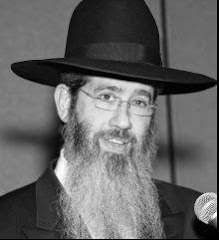9:00 AM
Halacha Shiur Basar B’Chalav
at Khal Bais Yitzchak, 2016 Avenue L (between Ocean Ave. and E. 21st Street)
Brooklyn, NY
Friday, August 15, 2008
Subscribe to:
Post Comments (Atom)
Welcome to Rabbi Dovid Goldwasser blog on News and Updates


14 comments:
it is very interesting when you put the issue this way, everything clear and easy
neverending story, and possibilities to make a comments are huge.
The best way is not to search to find a logic, just to follow what is writen.
HKBH told us: "Ve'asu Li Mikdash, Ve'Shachanti B'Socham."-- make for Me a holy PLACE and I wil dwell among THEM. How can HKBH dwell in THEM when we only have ONE?
Chazal tell us that it means that each and everyone of us MUST try to make a place in our Neshamos for HKBH's existance. Torah and mitzvos should not be just rituals and services; We need to allow our Avodas Hash-m penetrate deep in our hearts and remember that we are fulfilling our creator's desire of us. Though we have a central Mikdash where the Shechina rests, each home, our place of Torah and Mitzvos, including our soul should have a place for HKBH's existance.
HKBH told us: "Ve'asu Li Mikdash, Ve'Shachanti B'Socham."-- make for Me a holy PLACE and I wil dwell among THEM. How can HKBH dwell in THEM when we only have ONE?
Chazal tell us that it means that each and everyone of us MUST try to make a place in our Neshamos for HKBH's existance. Torah and mitzvos should not be just rituals and services; We need to allow our Avodas Hash-m penetrate deep in our hearts and remember that we are fulfilling our creator's desire of us. Though we have a central Mikdash where the Shechina rests, each home, our place of Torah and Mitzvos, including our soul should have a place for HKBH's existance.
HKBH says: "Woe to My children that because of their transgressions I have destroyed My home, and burned my sanctuary, and have exiled them from their homeland." The Talmud (Berachos 3a) tells us that HKBH repeats this 3 times a day everyday.
Are we listening? and what is OUR response?
It states in Yesod VeShoersh HaAvoda 1:5, that we should have a constant awareness of giving HKBH Nachas with every action that we commit. (whether it's tefilla, chesed, learning or watching others doing Mitzvos) we should realize that we are making Hash-m proud of us.
It's so easy to concentrate on doing things perfectly and meeting all the requirements and the have- to's that we forget at the end of the day, our Loving Heavenly Father just wants to be proud of us. (Like any human parent is proud of their children, it's parallel to HKBH's relationship with us.)
Shlomo Hamelech said in Koheles, "D'vrei Chachamim B'nachas Nishmaim"--the word of the wise, spoken gently, are heard. A wise man is in constant control of his words and listens to people when thet speak to him. He thinks twice before he responds and chooses his words carefully.
The Midrash (Bamidbar Rabba 9:2) suggests that we should always try to have a positive outlook on life. Be ready to forgive the mishaps in life( children broke something of high value in the house), and HKBH will repay your loss accordingly.
We learn in Iggeres Haramban that: "once you have distant yourself from anger, the quality of humility will enter your heart."
An angry person feels inferior to everyone else around. When poeple live for and depend on the opinion of others, they don't value their own self-worth and therefore lack self-esteem. When people won't praise him, he'll feel a certain anger and hostility and cannot be humble as a result. (Alei shur, volume I p.42)
we learn in Chovot Halevavot, that a person who distances himself from anger/resentment is led toward true humility. He then strives to reach toward Hishtachavut-equillibriam. So therefore he no longer cares if you he's praised or insulted. He self-esteem is from with in himself.
If we have a place for Torah in our hearts and souls HKBH will dwell wherever we are
We must live eachday as if it would bring the geulah!
There is a Rambam on Mishna Avos that says the root of the word Simcha is Macha- to erase. Inorder to be truely happy we have to forget/ "erase" our own needs and desires and place the Ratzon of Hash-m (and others) first. We can therefore achieve a level of humility if we are not so quick to be angered when offended.
Tomer Devorah (ch.II) states that humility is the key factor in achieving/ perfecting all other middos. Meaning that when one can truely have humility a part of them, then it is as if they open a pure pathway that allows Divine "energy" to flow through. When we make humility a part of our nature, we can filter out all Gaivadik (and other) feelings and be more attuned to the needs and desires of our Creator, the Ribbono Shel Olam.
Post a Comment